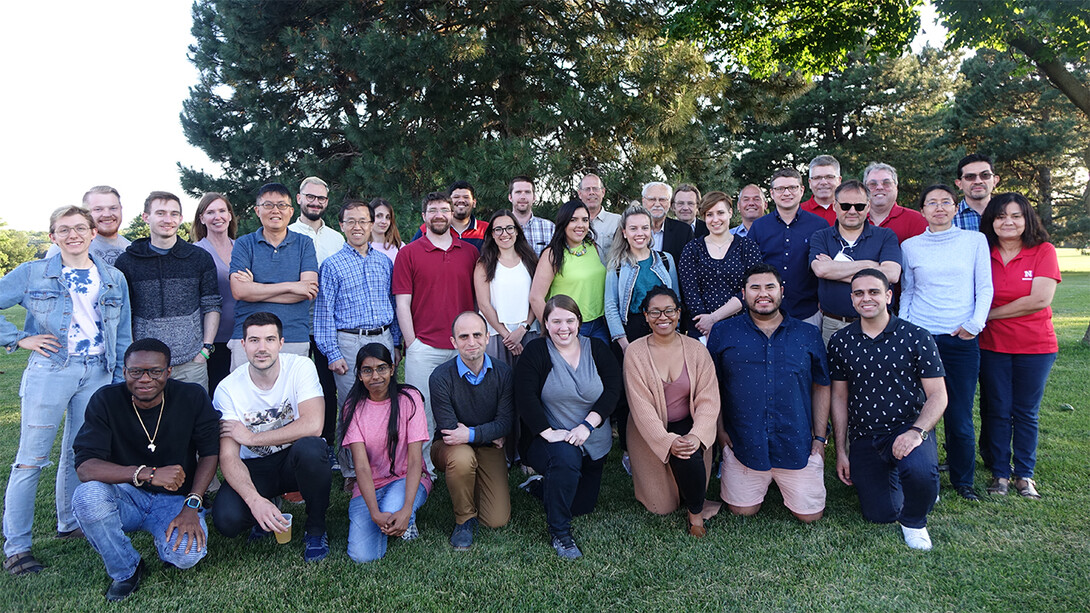
A far-flung research network continued a 10-year tradition when faculty and students from South Carolina and Sweden visited the University of Nebraska–Lincoln for a weeklong graduate course from June 10-14.
Hosted at the Beadle Center, Nebraska’s Redox Biology Center welcomed visitors from the Medical University of South Carolina and Stockholm’s Karolinska Institutet. The course, which rotates among the three institutions, focused on the regulation and biological consequences of so-called redox reactions — the molecular gain and loss of electrons — that underlie both essential and disease-driving chemical processes in organisms.
Featuring a combination of lectures, presentation training and career-counseling sessions, the pass-fail course concluded with a written exam on redox biology topics covered throughout the week. Multiple lessons highlighted ongoing research from participating Nebraska faculty, including organizer Donald Becker and colleagues from biochemistry, chemistry and the University of Nebraska Medical Center.
“This is a truly great opportunity for students to learn about fundamentals of redox biology from world-leading experts and network with their international peers,” said Oleh Khalimonchuk, Susan J. Rosowski Associate Professor of biochemistry at Nebraska. “Throughout its history, this course has been absolutely fun and led to many fruitful interactions and research collaborations.”
Elias Arnér, a professor of biochemistry who researches redox biology and cancer at the Karolinska Institutet, estimated that nearly 250 students have participated in the course since its 2009 creation.
Though the course requires students to immerse themselves in its accelerated curriculum, Becker said the “rewarding experience” extends beyond the classroom — and can inspire visitors to leave with mementos of their trip.
“Visiting students and faculty are very fond of Lincoln,” said Becker, Charles Bessey Professor of biochemistry and director of the Redox Biology Center. “One student purchased the famous corn-head hat as a souvenir.”







